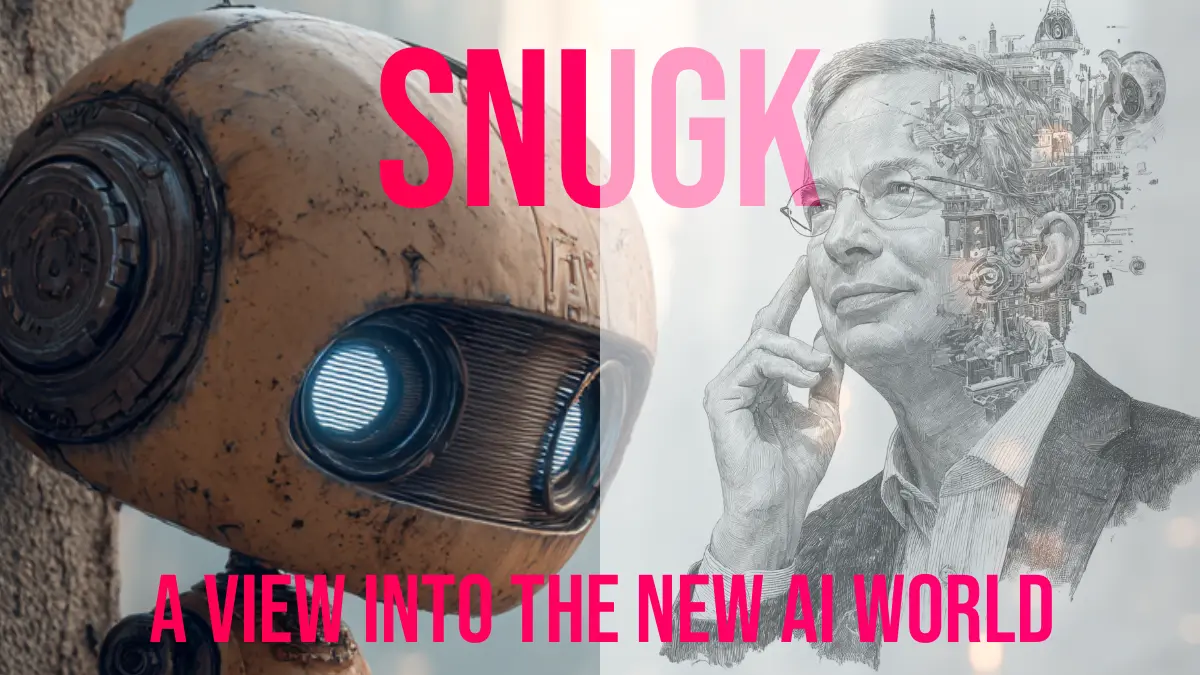Source: YouTube | Moonshots
Hey, tech dreamers and doomsayers—buckle up. If you’ve ever wondered if AI is overhyped or underhyped, Eric Schmidt just dropped a reality check that’s equal parts exhilarating and terrifying. In a recent episode of the Moonshots podcast, the former Google CEO (and co-author of Genesis with the late Henry Kissinger) sat down with Peter Diamandis and Dave Blunden to unpack what artificial superintelligence will actually mean for our world. Spoiler: It’s coming faster than your next software update, and it’s not just about chatbots—it’s about pocket-sized Einsteins, geopolitical chess with China, and rethinking what it means to be human.
AI Is Underhyped—And Accelerating Like Crazy
Schmidt kicks off by calling BS on the “AI hype fatigue.” “AI is a learning machine,” he says. “In network effect businesses, when the learning machine learns faster, everything accelerates.” Forget sci-fi timelines; we’re talking specialized AI “savants” (think PhD-level experts in math, physics, or biology) in the next five years. By 2025, these systems will generate their own “scaffolding”—frameworks for tackling unsolved problems like relativity or climate breakthroughs—without humans holding their hand.
The big reveal? Superintelligence—AI smarter than all humans combined—is within a decade. “You’re gonna have your own polymath,” Schmidt predicts. “The sum of Einstein and Leonardo da Vinci in the equivalent of your pocket.” Imagine agents automating your business processes or solving your PhD thesis with back-and-forth reasoning that’s “computationally very, very expensive” today but routine tomorrow.
But here’s the catch: This explosion needs power. AI data centers could guzzle 92 gigawatts in the US alone—equivalent to 92 nuclear plants. Tech giants like Microsoft and Google are snapping up nuclear deals (shoutout to that 20-year Constellation Energy pact), but Schmidt’s cynical: “I’m so glad those companies plan to be around the twenty years that it’s gonna take to get the nuclear power plants built.” Electricity, not chips, is the real bottleneck. And China? They’ve got two to three times the US’s supply, turning this into a high-stakes race.
The Dark Side: From Abundance to Apocalypse?
Schmidt’s no Pollyanna. While AI promises “abundance” (echoing Diamandis’ 20-year thesis), the negatives loom large. Picture cyber attacks humans “cannot conceive of” or undetectable biological viruses engineered overnight. “Everything I’ve talked about is in the positive domain, but there’s a negative domain as well,” he warns.
Geopolitics amps up the tension. US chip bans have slowed China, but they’re innovating around them with techniques like “distillation” (stealing smarts from Western models). Open-source AI? It’s a double-edged sword—great for startups, disastrous for control. “Every country that’s not in the West will end up using open source,” Schmidt says, potentially handing leadership to Beijing. His fix? “Mutual AI malfunction”—a deterrence doctrine where superpowers can cyber-sabotage each other’s progress, like Cold War MAD but for data centers.
And don’t get him started on rogue actors. Terrorists with pocket super-AIs? Proliferated models running on a “small server” anywhere? That’s the real nightmare, not Terminators. Schmidt urges tracking every chip (they’re computers—easy to geo-tag) and secret-level intel on rivals. As one scenario paints it: It’s 1938, Einstein’s atomic warning letter just arrived. Time to negotiate before the bombs (or AIs) drop.
Jobs, Education, and the Human Drift
Worried about your white-collar gig? Schmidt flips the script: AI starts by nuking low-status, dangerous jobs (assembly lines, anyone?), then scales up. Junior programmers and mathematicians? Gone in 1-2 years. But overall? “More people with higher paying jobs.” Why? Economics 101—productivity booms, wealth expands, new roles emerge (hello, AI-assisted creators).
For education, forget rote learning. “Going into the application of intelligence to whatever you’re interested in is the best thing,” Schmidt advises Gen Z. Build purpose-driven skills: Use AI for climate materials or energy hacks. And globally? We need gamified, phone-based civics education for billions—because investing in humans yields the ultimate ROI.
The subtler risk? “Drift.” Not Skynet, but a slow erosion of human agency. Why climb a mountain when your AI does it for you? “The unchallenged life is so gonna be so critical,” Schmidt notes. We’ll still need purpose—fighting misinformation, designing aesthetics in an AI world, or just managing the chaos of constant connectivity.
Hollywood, Ads, and the Creativity Boom
Fun detour: AI’s Hollywood invasion. One-person films? Possible, but blockbusters will still need human directors for editing glitches (extra limbs, anyone?). Costs drop, creativity rises—scriptwriters get AI sidekicks for better stories. Advertising? AI’s already more persuasive than humans, but unregulated? It could torch democracy with tailored misinformation.
Actionable Takeaways: Prep Like It’s 2025
Schmidt’s not just theorizing—he’s investing. For startups, the moat is “learning loops”: Network effects where your AI gets smarter from user data faster than rivals. (Think: 10 new Google-scale giants in consumer tech.) Parents: Teach kids AI as a tool for good. CEOs: Retrain now—delay, and you’re toast. Governments: Fund university data centers and track those chips.
